Background
Highet was born on June 22, 1906 in Glasgow, Scotland. He was the son of Gilbert Highet, a postal telegraph superintendent, and Elizabeth Gertrude Boyle.


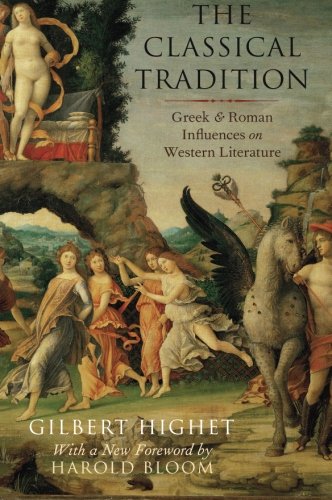
(Originally published in 1949, Gilbert Highet's seminal Th...)
Originally published in 1949, Gilbert Highet's seminal The Classical Tradition is a herculean feat of comparative literature and a landmark publication in the history of classical reception. As Highet states in the opening lines of his Preface, this book outlines "the chief ways in which Greek and Latin influence has moulded the literatures of western Europe and America". With that simple statement, Highet takes his reader on a sweeping exploration of the history of western literature. To summarize what he covers is a near-impossible task. Discussions of Ovid and French literature of the Middle Ages and Chaucer's engagement with Virgil and Cicero lead, swiftly, into arguments of Christian versus "pagan" works in the Renaissance, Baroque imitations of Seneca, and the (re)birth of satire. Building momentum through Byron, Tennyson, and the rise of "art of art's sake", Highet, at last, arrives at his conclusion: the birth and establishment of modernism. Though his humanist style may appear out-of-date in today's postmodernist world, there is a value to ensuring this influential work reaches a new generation, and Highet's light touch and persuasive, engaging voice guarantee the book's usefulness for a contemporary audience. Indeed, the book is free of the jargon-filled style of literary criticism that plagues much of current scholarship. Accompanied by a new foreword by renown critic Harold Bloom, this reissue will enable new readers to appreciate the enormous legacy of classical literature in the canonical works of medieval, Renaissance, and modern Europe and America.
https://www.amazon.com/Classical-Tradition-Influences-Western-Literature/dp/0199377693?SubscriptionId=AKIAJRRWTH346WSPOAFQ&tag=prabook-20&linkCode=sp1&camp=2025&creative=165953&creativeASIN=0199377693
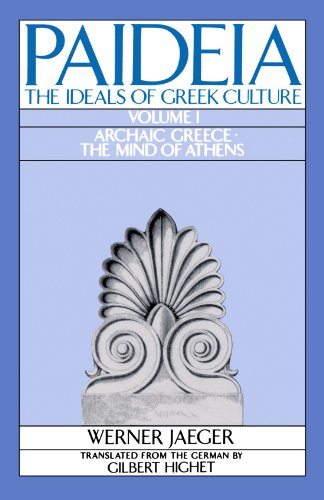
(Werner Jaeger's classic three-volume work, originally pub...)
Werner Jaeger's classic three-volume work, originally published in 1939, is now available in paperback. Paideia, the shaping of Greek character through a union of civilization, tradition, literature, and philosophy is the basis for Jaeger's evaluation of Hellenic culture. Volume I describes the foundation, growth, and crisis of Greek culture during the archaic and classical epochs, ending with the collapse of the Athenian empire. The second and third volumes of the work deal with the intellectual history of ancient Greece in the Age of Plato, the 4th century B.C.--the age in which Greece lost everything that is valued in this world--state, power, liberty--but still clung to the concept of paideia. As its last great poet, Menander summarized the primary role of this ideal in Greek culture when he said: "The possession which no one can take away from man is paideia."
https://www.amazon.com/Paideia-Ideals-Culture-Archaic-Greece/dp/0195004256?SubscriptionId=AKIAJRRWTH346WSPOAFQ&tag=prabook-20&linkCode=sp1&camp=2025&creative=165953&creativeASIN=0195004256
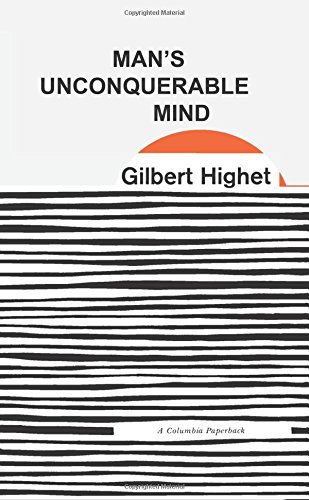
(Explores the power, capabilities, and limitations of the ...)
Explores the power, capabilities, and limitations of the human mind from ancient times
https://www.amazon.com/Mans-Unconquerable-Mind-Gilbert-Highet/dp/023108501X?SubscriptionId=AKIAJRRWTH346WSPOAFQ&tag=prabook-20&linkCode=sp1&camp=2025&creative=165953&creativeASIN=023108501X
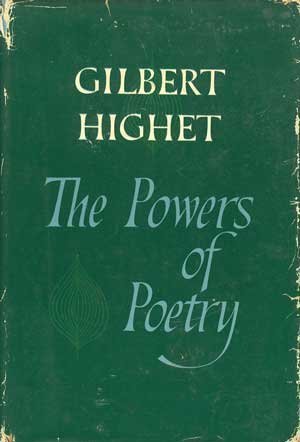
(39 introductory essays on poetic technique, the lives of ...)
39 introductory essays on poetic technique, the lives of individual poets, mood and individual poems, and the values of poetry
https://www.amazon.com/Powers-Poetry-Gilbert-Highet/dp/0195005732?SubscriptionId=AKIAJRRWTH346WSPOAFQ&tag=prabook-20&linkCode=sp1&camp=2025&creative=165953&creativeASIN=0195005732

(Gilbert Highet was a legendary teacher at Columbia Univer...)
Gilbert Highet was a legendary teacher at Columbia University, admired both for his scholarship and his charisma as a lecturer. Poets in a Landscape is his delightful exploration of Latin literature and the Italian landscape. As Highet writes in his introduction, “I have endeavored to recall some of the greatest Roman poets by describing the places were they lived, recreating their characters and evoking the essence of their work.” The poets are Catullus, Vergil, Propertius, Horace, Tibullus, Ovid, and Juvenal. Highet brings them life, setting them in their historical context and locating them in the physical world, while also offering crisp modern translations of the poets’ finest work. The result is an entirely sui generis amalgam of travel writing, biography, criticism, and pure poetry—altogether an unexcelled introduction to the world of the classics.
https://www.amazon.com/Poets-Landscape-Review-Books-Classics/dp/1590173384?SubscriptionId=AKIAJRRWTH346WSPOAFQ&tag=prabook-20&linkCode=sp1&camp=2025&creative=165953&creativeASIN=1590173384
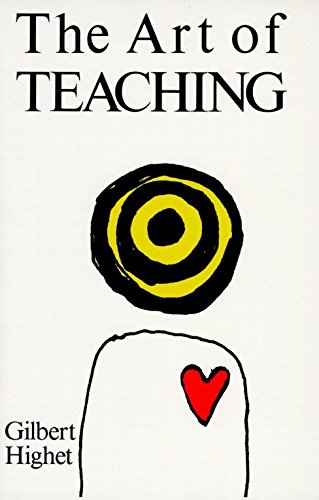
(The noted classicist presents his educational methodology...)
The noted classicist presents his educational methodology, within the context of history, from the Sophists to modern teaching.
https://www.amazon.com/Art-Teaching-Gilbert-Highet/dp/0679723145?SubscriptionId=AKIAJRRWTH346WSPOAFQ&tag=prabook-20&linkCode=sp1&camp=2025&creative=165953&creativeASIN=0679723145
historian writer academic intellectual
Highet was born on June 22, 1906 in Glasgow, Scotland. He was the son of Gilbert Highet, a postal telegraph superintendent, and Elizabeth Gertrude Boyle.
In 1924 Highet graduated from Hillhead High School, where he edited the school magazine, already showing his disposition for writing. Later that year he entered the University of Glasgow, having received a full scholarship as the result of a competitive examination. Here he also edited the student magazine. He was awarded the Master of Arts degree in 1929, achieving first-class honors in the classics and receiving the Newlands Scholarship for study at Oxford University.
Highet attended Balliol College at Oxford for the next three years and graduated with a Bachelor of Arts in 1932, again with first-class honors, as well as with other university awards such as the Chancellor's Prize.
In 1936 he received the Master of Arts degree from Oxford, and in 1937 he came to the United States to teach at Columbia University at the invitation of its president, Nicholas Murray Butler.
Between 1932 and 1938, Highet became fellow and lecturer in classics at St. John's College, Oxford, serving first as a lecturer and then as a tutor. During these five years he served as editor of the New Oxford Outlook, a literary and political review, and cofounded the Oxford University Experimental Theatre Society. In 1938 he was made full professor of Greek and Latin at Columbia, which was a notable achievement for a thirty-two-year-old man.
Except for five years of leave during World War II, he remained at Columbia until his retirement. Between 1941 and 1946 he served first as a lieutenant in the British army, working as a liaison to the United States and Canada as a member of the British mission in Washington, and then, in the years 1945-1946 (after being promoted to lieutenant colonel), as part of the British military government in Germany, where he was concerned with acquiring Nazi party property and locating war booty taken by the Germans from occupied countries.
Highet returned to Columbia University in 1946, and in 1950 became Anthon Professor of Latin Language and Literature; both he and his wife became United States citizens in 1951. Highet achieved distinction and popularity as a teacher of the classics at Columbia. Large numbers of students attended his lectures because they were awed by his display of knowledge, stimulated by his enthusiasm for learning, and pleased by his theatrical approach, which included walking about the classroom and the ample use of gestures such as "waving his handkerchief. "
In his book The Art of Teaching (1950), Highet presented his ideas on teaching, which he considered more an "art" than a "science. " Among the characteristics of a good teacher he included knowledge both of what is being taught and of the pupil, as well as love for the subject and fondness for the student. The work received national attention. Highet's status as a classical scholar was enhanced by the publication of two books, The Classical Tradition (1949) and, especially, Juvenal the Satirist (1954), which he worked on for eighteen years and which was the first definitive work on the poet. The 1950's was a particularly busy period in Highet's career in teaching and writing (eight of his books were published in this decade).
Between 1952 and 1954 he served as the principal book reviewer for Harper's magazine. In the latter year he became judge for the Book-of-the-Month Club, while for seven years, 1952 until 1959, he gave a weekly fifteen-minute radio talk, "People, Places and Books, " which was initiated and sponsored by the Oxford University Press, first at WABF-FM and then at WQXR, both in New York City. The program was eventually carried by some three hundred radio stations, as well as by the British Broadcasting Corporation, the Voice of America, and a division of the United States Veterans Administration. The radio and television columnist of the New York Herald Tribune, John Crosby, wrote that each program was "extraordinarily well constructed, an essay in its particular field, and filled with exquisite satire. " Highet published his radio talks in four books, beginning with People, Places and Books (1953).
In 1958 he became chair of the editorial board of Horizon magazine. From 1965 until 1972, Highet was chair of the Greek and Latin department at Columbia. After the age of fifty he found some of the undergraduates too "arrogant" and teaching them to be too time-consuming; during the last twenty years of his career at Columbia he received the most pleasure instructing graduate students.
In 1972 he retired, becoming professor emeritus, and in 1976 he discussed his "further reflections" and musings on teaching in The Immortal Profession: The Joy of Teaching and Learning (1976). Besides writing books, Highet also translated works, including Otto Kiefer's Sexual Life in Ancient Rome (1935), the three volumes of Werner Jaeger's Paideia: The Ideals of Greek Culture (1939, 1943, 1944), and poems for the Oxford Book of Greek Verse in Translation (1938). He was also a contributor to such periodicals as Horizon, Virginia Quarterly Review, American Scholar, Classical Review, and Studies in Philology.
He died of cancer in New York City.
(Originally published in 1949, Gilbert Highet's seminal Th...)
(Gilbert Highet was a legendary teacher at Columbia Univer...)
(The noted classicist presents his educational methodology...)
(39 introductory essays on poetic technique, the lives of ...)
(Werner Jaeger's classic three-volume work, originally pub...)
(Explores the power, capabilities, and limitations of the ...)
Highet was president of the Dialectic Society.
Highet was described by one former student as "unique, dominant, overwhelming in the best sense, " and unmatched as a teacher.
On September 22, 1932 Highet married Helen Clark McInnes, whom he had met during his first year at the University of Glasgow. His wife pursued a career in her own right as a novelist. They had one child.
